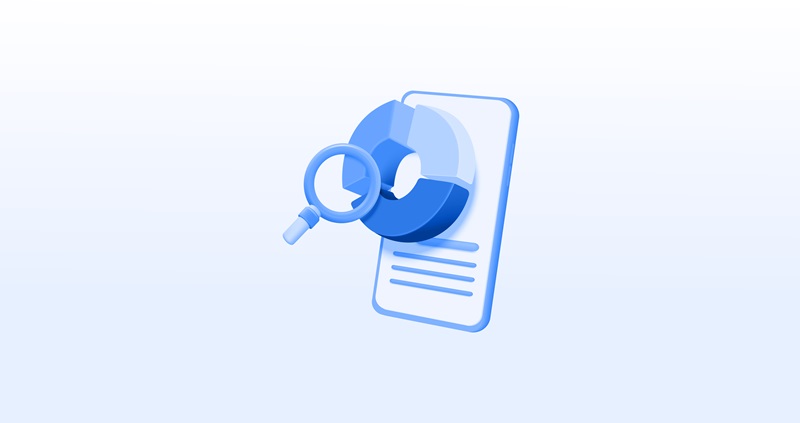Should I make biweekly payments on my mortgage?
Here’s how biweekly mortgage payments work, and what to consider before switching.
Advantage of biweekly mortgage payments: Biweekly mortgage payments accelerate principal reduction, helping you pay off your loan faster without increasing your regular payment amount significantly.
Long-term interest savings: This strategy can lead to substantial long-term interest savings, often cutting years off a 30-year mortgage.
Double-check before you switch: Not all lenders handle biweekly payments the same way, understanding your lender’s policies and any potential fees is essential before making the switch.
What are biweekly mortgage payments?
Biweekly mortgage payments mean making half your mortgage payment every two weeks, as opposed to once a month. While it may seem like you are still making the same amount of payments, the way the math adds up, you actually end up making 26 half-payments a year (since there are 52 weeks in a year), totaling 13 full monthly payments, which can potentially help you reduce your principal. That “extra” full payment can help accelerate principal reduction and, in turn, reduce your interest over time.
Biweekly mortgage payments vs. monthly payments may appeal to some people due to the possibility of a faster payoff, saving on interest payments, and gaining more equity sooner. However, while it might work for some people, it may not always be ideal for every homeowner. For example, in some cases, lenders may “hold” half-payments until a full monthly payment is registered, which diminishes the intended benefit. Therefore, it is important to understand the potential benefits and drawbacks to see if biweekly mortgage payments would fit into your repayment plan.
Example of how to make biweekly mortgage payments
To make biweekly payments on your mortgage, you would need to split your standard monthly principal and interest payment in half and pay that every two weeks rather than once a month.
To put this into perspective, let’s take a hypothetical example of a $300,000, 30-year mortgage at 5% fixed interest with a 15% down payment. Your first monthly payment would look something like this:
Monthly payment | Principal | Interest |
$1,369.00 | $306.50 | $1,062.50 |
To make this a biweekly payment, you would cut the $1,369 monthly payment in half, paying $684.50 every two weeks, so your first biweekly payment would look something like this:
Biweekly payment | Principal | Interest |
$684.50 | $194.11 | $490.39 |
When comparing how much you would pay in biweekly mortgage payments vs. monthly, here’s how much you could have theoretically saved (in time and interest) to finish repayment:
Strategy | Term length | Total interest paid | Interest saved | Years saved |
Standard monthly payments | 30 years | $237,840 | N/A | N/A |
Biweekly payments | ~25 years 10 months | $187,770 | $50,070 | ~4 years 2 months |
With monthly payments, you pay interest on the full balance once per month, so the principal reduction starts off slow. With biweekly payments, you’re paying interest more frequently and effectively making one extra payment each year. Over time, this accelerates principal reduction, leading to lower total interest and a faster payoff. In this theoretical example, switching to biweekly payments would have shaved off about four years and helped you save $50,000+ in interest. However, this example is for illustrative purposes only, so actual interest calculations may vary by lender.
Benefits and drawbacks of biweekly payments on your mortgage
Before switching directly to biweekly mortgage payments, you may want to consider some of the potential benefits and drawbacks of this type of payment plan to see if it will work in your best interest.
Let’s consider some of the pros and cons of switching to biweekly mortgage payments vs. monthly payments.
Pros of biweekly payments on your mortgage
- Interest savings over the life of the loan: Since extra payments can help lower your principal faster, you might end up owing less interest in the long run.
Shorter loan term: Biweekly payments can potentially help borrowers shave years off their mortgage term.
Faster equity growth: Paying your mortgage off faster can help you build home equity more quickly.
- Budget alignment: Since some borrowers may be paid biweekly, mortgage payments can potentially align more naturally with paychecks.
Cons of biweekly payments on your mortgage
- Setup fees or service charges: Some mortgage servicers may charge for biweekly payment plans.
Lender restrictions or policies: Some lenders may refuse to accept partial payments or may not apply extra payments immediately to principal but rather to interest owed.
Impact on cash flow or other financial goals: Committing more money to mortgage payments may strain budgets or reduce funds available for other finances like savings, debt payoff, or emergency funds.
Prepayment penalties: Although rare, some older mortgages might include penalties for paying off early, so you may want to double-check your mortgage terms.
Less flexibility: You may have less ability to redirect those funds if your financial situation changes.
Are biweekly payments on a mortgage suitable for my situation?
Now that you know the advantages and potential disadvantages of biweekly mortgage payments, it is important to note that this approach might not be suitable for all borrowers. This can be especially true if those extra payments will result in a tighter budget restricting your finances in other areas, such as hindering other debt payments, if you don’t have an established emergency fund, or if your lender charges extra fees for early payments.
To determine if this strategy is right for you, you may want to assess your current financial situation, seek professional advice if needed (e.g., from a financial advisor), and consult with your lender. Here are some other things to keep in mind before you decide to switch to a biweekly payment schedule.
Decision checklist: Before you switch to biweekly mortgage payments
- Does your lender allow biweekly payments or partial payments?
Some lenders may not accept biweekly or partial payments, so you might want to confirm this beforehand.
Are there setup or service fees?
Setting up biweekly payments on your mortgage can potentially result in setup or service fees. Informing yourself beforehand can help you be aware of any extra charges.
Will extra payments go to principal immediately?
Ensure that extra payments will go to your principal. You may want to check if you can set up extra payments to target the principal if your lender allows you.
How will it affect your monthly budget or cash flow?
While paying off debt faster may feel good, you might not want it to come at the expense of other financial responsibilities. It may be wise to ensure your budget allows you to make biweekly payments and still take care of other finances.
Are there higher-priority uses for your money?
Do you have other higher-priority uses for your extra cash, such as building an emergency fund, paying off high-interest debt, or saving for retirement? If so, do these obligations still leave sufficient room in your budget for extra mortgage payments?
Does your mortgage have a prepayment penalty clause?
If your lender charges you a penalty or extra fees for early repayment, this can eat into the amount you are saving. You may want to check with your lender beforehand.
Alternatives to a formal biweekly plan
If you are unsure of or want an alternative to a formal biweekly repayment plan, you might also consider:
Manual extra payments or principal payments: You can make extra payments whenever your budget allows, without a formal biweekly structure.
Round up monthly payments: If you want to contribute more to your monthly payments, another option would be to consider rounding up your payments. For example, you could pay $1,200 instead of $1,175 and apply the extra to principal.
Annual lump-sum payment: If you receive some extra cash, for example through a bonus or tax refund, you can consider using some of that towards your principal if your financial situation allows you to.
Shortening the term or refinancing: Consider other options, such as shortening your loan term if your cash flow allows.
Bottom line
Switching to biweekly mortgage payments can be one available strategy for homeowners looking to save on interest and pay off their mortgage sooner. By effectively adding one extra payment each year, you can build equity faster and potentially cut years off your loan term. However, the benefits depend on your lender’s policies, any associated fees, and your personal financial situation. For some, simply making occasional extra principal payments or rounding up monthly payments may offer similar advantages with more flexibility.
Before making the switch, review your mortgage terms, speak with your lender, and consider how this strategy fits into your overall financial plan. Pairing a smart repayment strategy with savings products — like high-yield savings accounts or certificates of deposit (CDs) — can help strengthen your long-term financial foundation.
If you’re ready to open an account today, Raisin is here to help. The Raisin marketplace gives you access to a variety of high-yield savings products to help you boost your savings. Explore account types, compare rates, and sign up to start maximizing your savings potential!
The above article is intended to provide generalized financial information designed to educate a broad segment of the public; it does not give personalized tax, investment, legal, or other business and professional advice. Before taking any action, you should always seek the assistance of a professional who knows your particular situation for advice on taxes, your investments, the law, or any other business and professional matters that affect you and/or your business.


